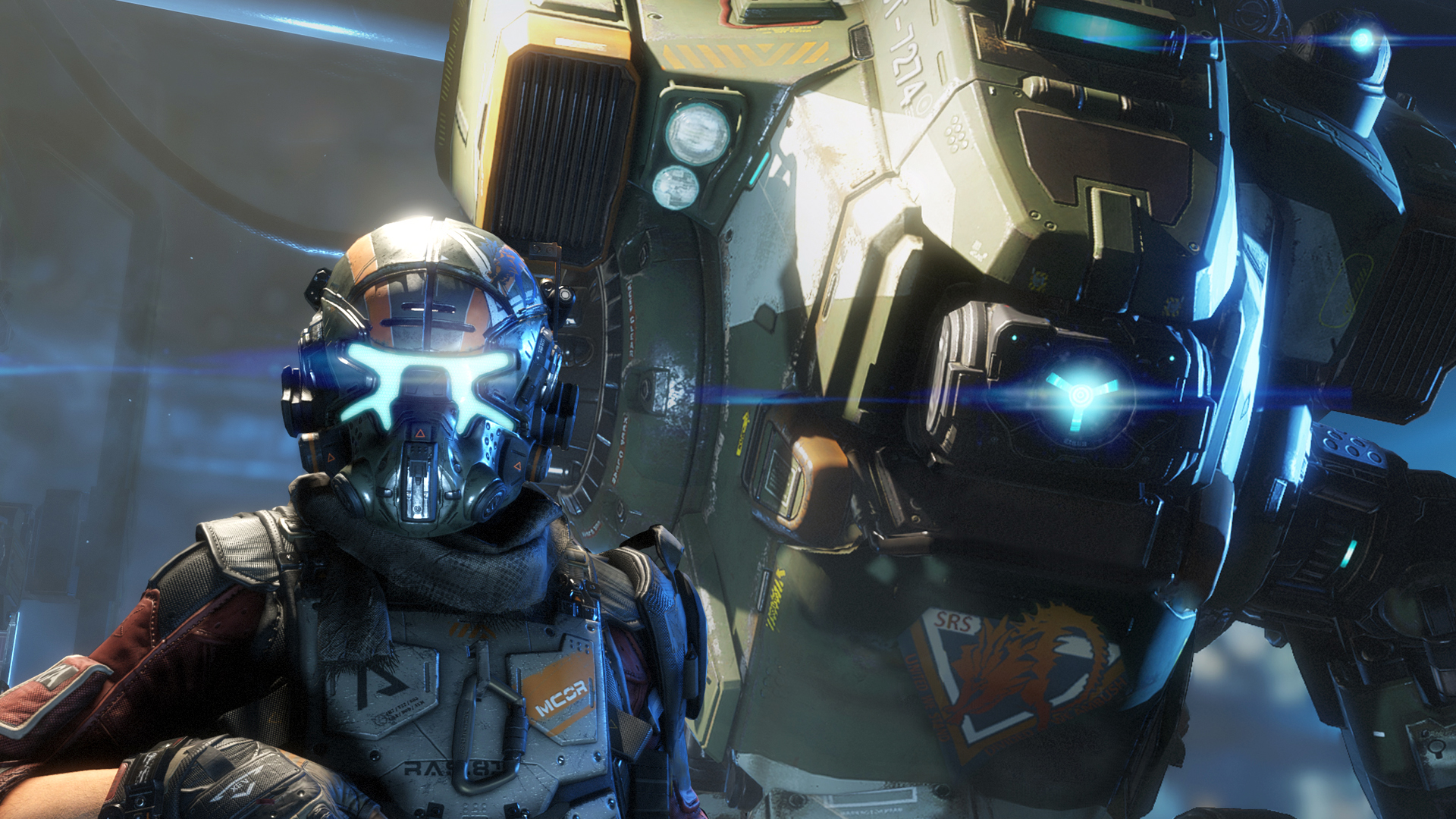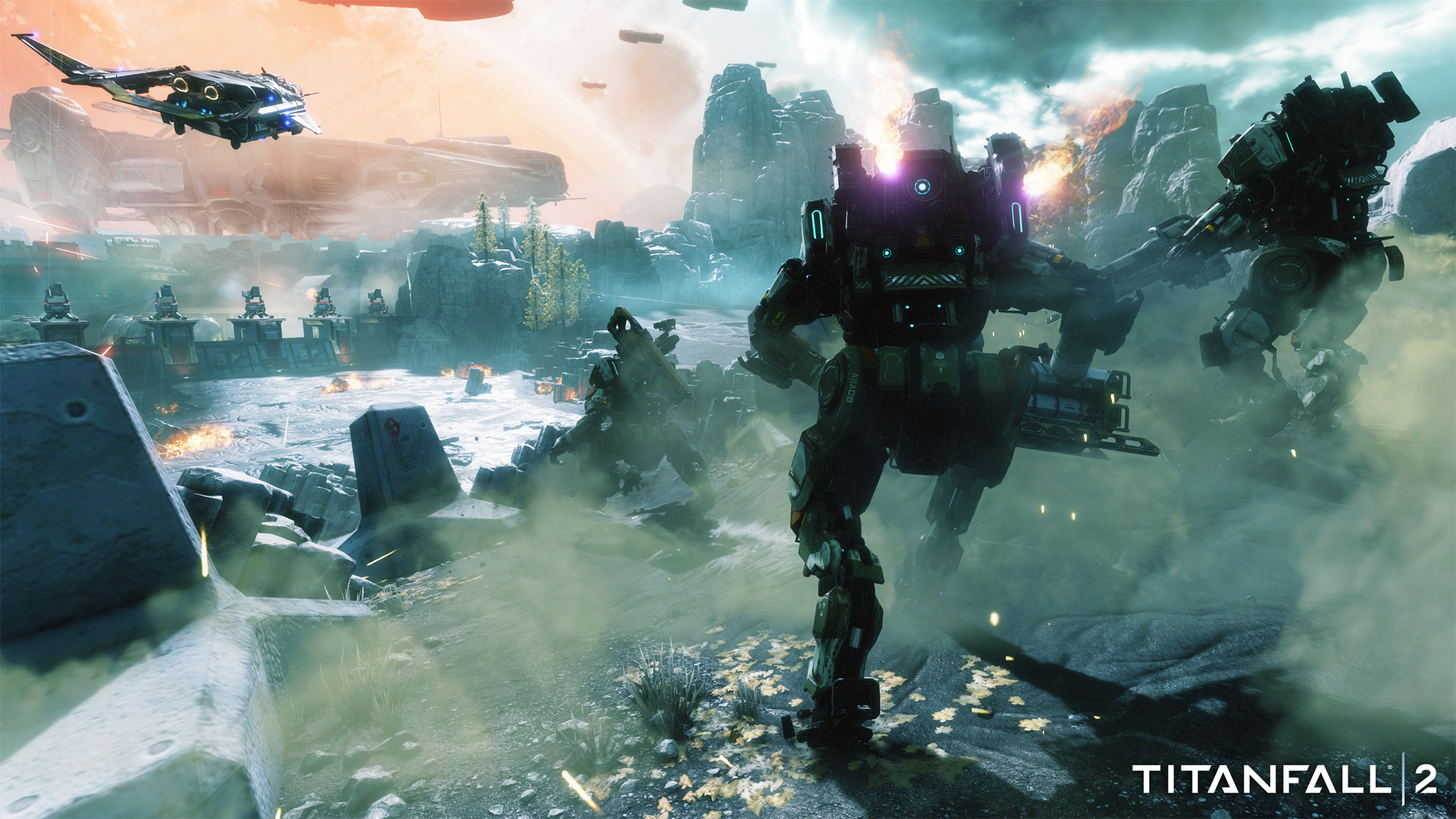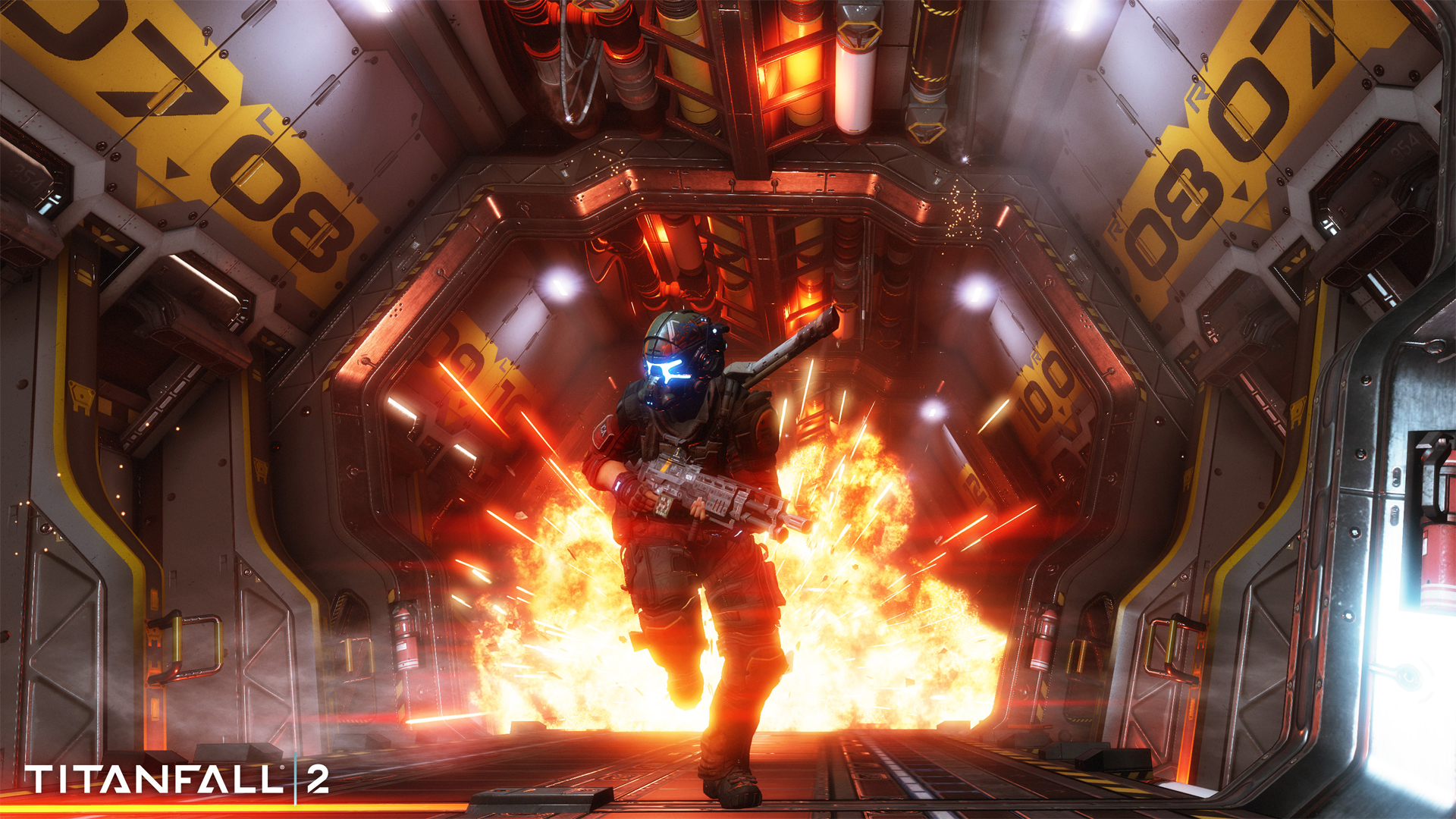Your robot buddy is the best part of Titanfall 2's single-player

There's something inherently appealing about the thought of having a robot buddy. Movies like The Iron Giant, Terminator 2: Judgment Day, and Transformers all capture how downright cool it'd be if a giant, metallic protector had your back - they keep you safe and keep you company, and in return you help shape their limited understanding of the world around them. That dynamic is at the heart of Titanfall 2's new single-player mode, and from what I saw during a hands-off demo, this story-driven campaign is already a monumental improvement over the original Titanfall's convoluted narrative (which was awkwardly grafted onto multiplayer matches). Titanfall 2 looks to deliver what we all wanted from the premise from the very start: a reason to think of our Titan as a friend first, and an all-powerful mech suit second.
You play as Jack Cooper, a rifleman in the Frontier Militia sent to fight the Interstellar Manufacturing Corporation (the same opposing factions from the first game). At the onset of Titanfall 2, Cooper's not much more than your average joe - but like young Luke Skywalker, he dreams of becoming a bona fide pilot someday. The demo opened with an FPS standby: a raid that devolves into utter disaster, as you make a crash-landing into a chaotic war zone within a verdant jungle. In classic Call of Duty fashion, you get a few brief, powerless glimpses of the carnage around you before blacking out from the impact of your drop from orbit.
When you come to, an alien creature resembling the dilophosaurus from Jurassic Park is about to make you its dinner - but just before it can pounce, it's gunned down by the 40mm cannon of a nearby Titan. You've just been saved by Captain Lastimosa, the Militia leader who took you under his wing when you expressed interest in training how to be a pilot. Lastimosa's not going to make it - and as he tumbles out of the mech's cockpit and breathes his last, he asks that you take good care of his Titan. Thus marks your first fateful meeting with the Vanguard-class Titan BT-7274, or BT for short.
Despite the intense opening, producer Drew McCoy makes sure to emphasize that Titanfall 2 isn't the typical FPS procession from one explosive set piece to the next. "[There's actually] a lot of downtime," he says. McCoy explains that Titanfall 2 is built on three core gameplay pillars: pilot combat, Titan combat, and pilot mobility, the last of which creates room for satisfying first-person platforming thanks to your jet-boosting Jump Kit and wall-running prowess. And when you're nimbly hopping around the environments in between shootouts with IMC soldiers, hostile 'bots, and aggressive wildlife, McCoy says there may be stretches where there's no dialogue or explosions for minutes at a time. "It's a little bit more thoughtful", says McCoy.
Right away, it's apparent that BT is the engine powering Titanfall 2's story. His calm, husky voice and imposing size bring Optimus Prime to mind, and when the level design forces you to split up from your Titan, BT acts as the voice in your ear that opens up room for a little exposition during missions. In this first instance, Cooper needs to retrieve a battery and bring BT back up to full power before they can make a neural link, the requisite to actually piloting him. This is also the first of any Titan's three protocols: link to a pilot, uphold the mission, and protect the pilot (in that order, McCoy reiterates, hinting that the needs of the mission may cause some climactic conflict of BT's directives at some point).
Compared to BT, Cooper himself just seems boring - the kind of generic FPS white-dude-with-some-scruff hero that military shooters can't seem to quit. From what I've seen, Cooper's best bit of character is an excited breath when he's finally stepping into a Titan for the first time. But Cooper's blandness doesn't seem so bad during his chats with BT. When talking with your Titan companion, you usually have the option to pick from two dialogue choices with a tap of the D-pad to keep the conversation going. These might be different lines of questioning, or - as is more often the case - it's a choice to respond to BT's comments in either a genuine or snarky way. It's unclear if the way you roleplay Cooper will have any tangible effect on the story, but it certainly makes for some great dialogue. When BT's explaining how long he and Captain Lastimosa had been linked, opting for Cooper's smarmy side results in a flippant comment that it's longer than any relationship he's ever had. BT's deadpan response is perfect: "Noted."

In another level, on the outskirts of a droid-powered construction facility, the only way forward is for BT to fling Cooper across a chasm (like Colossus doing a Fastball Special with Wolverine) so that Cooper can move a crane and give BT a walkway. BT informs Cooper that the maneuver has a 68% chance of success - and should Cooper nervously ask what the other 32% involves, BT will calmly respond with a list of potential calamities, adding that "dismemberment may occur". But just before hurling Cooper towards the tricky wall-run, BT looks at you with his glowing blue eye and reassuringly says "Trust me." It was easily my favorite moment from the demo, and I asked McCoy how BT knew just what to say in that moment. "The construct of the Vanguard Titan and the way that they interact with their pilot is very carefully figured out," says McCoy. "On one hand, they are machine - they're going to calculate the probability of survival and be very cold about it. But on the other hand, he knows that a human is piloting him, and he has to trust that Titan to be making the right choices and vice versa. It's got this interesting dichotomy to it."
Weekly digests, tales from the communities you love, and more
So far, the bond between Cooper and BT seems to be hitting all the right beats - as does the gameplay, which felt to me almost like a first-person Uncharted. Titanfall 2 employs that same 'wide linear' design where seemingly open areas are subtly funneling you towards the next spacious zone, while the action bounces between tense firefights and gratifying platforming sections, the latter of which might see you gracefully chaining wall runs on rocky cliffsides or around the exposed electrical conduits lining the hall of a high-tech plant. If first-person jumping typically vexes you, don't worry - your HUD will eventually display a holographic pilot that maps out the proper path if you get stuck. Titanfall 2 also evokes Uncharted when it comes to how gorgeous the environments are; for instance, the distant mountains cresting above the jungle treeline in the opening level looked pristinely beautiful, almost photorealistic.

As with anything in life, there's still some room for improvement. Sadly, you won't be able to bedazzle your Titan to make BT's dashboard feel a little more personalized, though the developers at Respawn Entertainment have entertained the possibility of knick-knacks like fuzzy dice, bobbleheads, and custom pictures. "That kind of [additional] stuff is always 'the dream'," says McCoy. "But the reality is, we have to make [the game] fun," he laughs. "That takes a lot of time and effort." Also, it's possible that the demo featured placeholder voices, but the head honchos of the IMC sounded like celebrity impressionists to my ear. Richter, a bloodthirsty enemy pilot, has a voice and attitude exactly like Arnold Schwarzenegger's, while another villain speaking on intercom could've doubled as Orson Welles.
But the bottom line is that Titanfall 2's single-player campaign is clearly superior to the original's barely-there story mode, and the interplay between Cooper and BT, man and machine, could elevate the experience above the cliched stakes we've come to expect from most big-budget FPS sequels. In both its narrative and explorational gameplay, Titanfall 2 is already poised to deliver the kinds of worthwhile solo adventures that were just plain absent from the first Titanfall. You'll be able to meet BT and bond with your Titan when Titanfall 2 hits PlayStation 4, Xbox One, and PC on October 28, 2016.
Lucas Sullivan is the former US Managing Editor of GamesRadar+. Lucas spent seven years working for GR, starting as an Associate Editor in 2012 before climbing the ranks. He left us in 2019 to pursue a career path on the other side of the fence, joining 2K Games as a Global Content Manager. Lucas doesn't get to write about games like Borderlands and Mafia anymore, but he does get to help make and market them.





